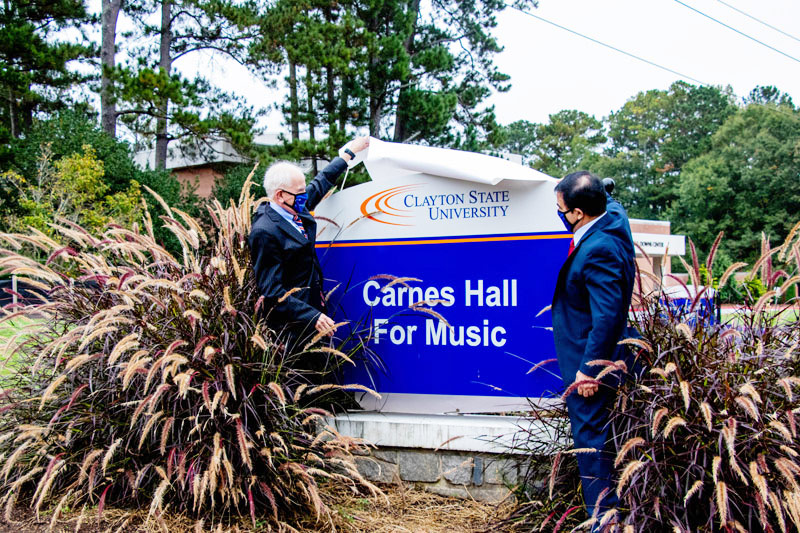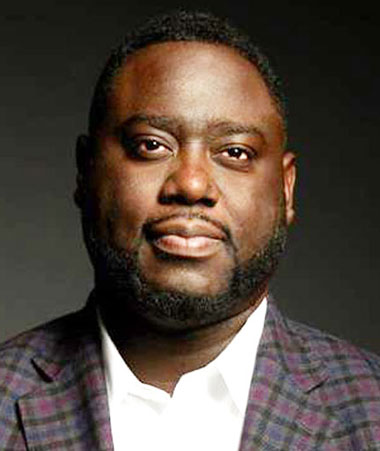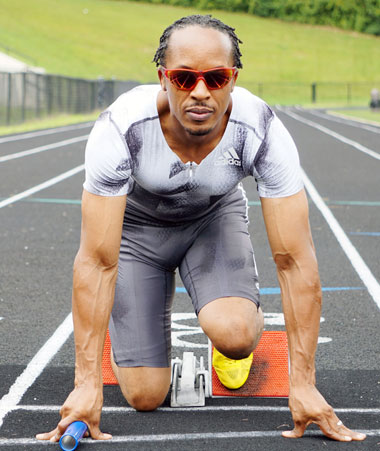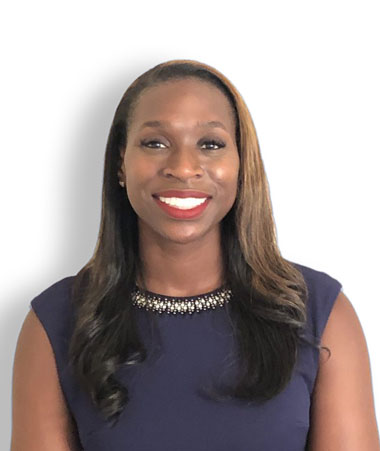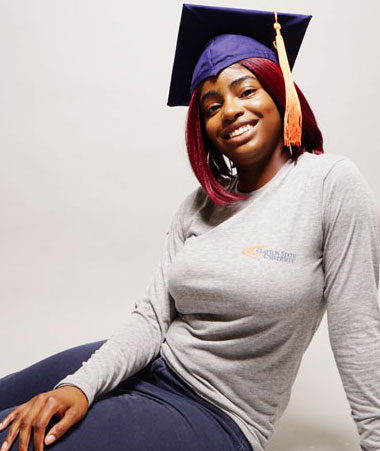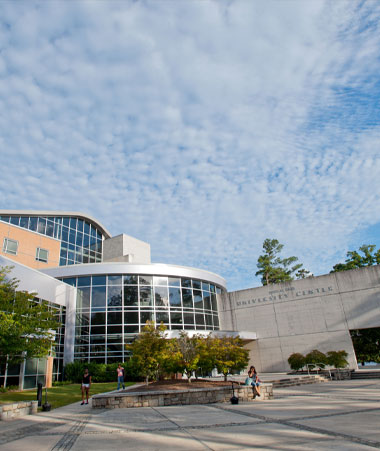
Learning Must Go On
With COVID-19 sweeping the nation, Clayton State University quickly shifted to virtual learning placing more than 1,000 classes online and ensuring students could complete their studies for spring and fall semesters.
Share the Story on FacebookShare the Story on TwitterShare the Story via EmailShare the Story on LinkedIn
Fall 2020 | By Kelly Petty
Clayton State University responds to COVID-19
After weeks of news reports about the growing threat of COVID-19 in the U.S., the University System of Georgia made a timely decision on operations at its 26 member institutions on March 12:
Based on guidance from the Georgia Department of Public Health (DPH) and the Governor’s Coronavirus Task Force, the University System of Georgia will temporarily suspend instruction for all institutions for two weeks, effective Monday, March 16, to allow time for USG institutions to test their business continuity plans and online instruction modules and for state officials to continue to assess the current situation regarding coronavirus (COVID-19) in Georgia.
As Clayton State University students continued with their spring break and faculty and staff quickly transitioned to telework, administrators initiated a shift to online learning that allowed the institution to successfully finish the semester and test its ability to provide quality instruction in uncertain times.

Prior to COVID-19, Clayton State offered a significant number of distance learning courses. Of the 1,219 class sections taught at Clayton State, 25% were fully online, 8% were hybrid and 67% on-campus.
At the onset of COVID-19, Associate Provost Jill Lane and her team moved 909 class sections to a distance learning format that utilized Desire2Learn, Microsoft Teams and textbook supplemented materials.
Additionally, Information Technology Services teamed up with the Center for Excellence in Teaching and Learning (CELT) to begin preparing training sessions for faculty so they could quickly shift to distance learning platforms.
“In late February as the virus began to spread outside of China, [CELT Director] Justin Mays and I started to look at contingency plans and worked to enhance our extended closing resources,” said Lane. “The enhancements included the development of more comprehensive distance learning support resources and additional trainings for faculty and students in case the situation arose in the US.”
Through targeted messaging and faculty reports, a link to the Keep Learning USG website was shared with students so students could transition to online learning with ease. And for those that did not have a laptop, students had the ability to access course content and Microsoft Teams meetings through their mobile phones, while faculty sent work assignments via snail mail for students to complete and return.
“Overall, I would attribute the success of the rapid shift to distance instruction to a collaboration of faculty, department chairs, administration and academic support units,” Lane says.
For the faculty and students, the shift to online learning brought challenges and opportunities.
“From the beginning of the pandemic until now, I found myself having more flexibility in my schedule now enrolled as full-time student online,” said senior Amanda Lam.
For Lam, it was initially challenging to find ways to contact professors virtually and by email as opposed to in person during faculty office hours as she had normally done. But the switch has also pushed her to develop soft skills like time management and organization.
“Because I am attending class from home, it has allowed me to organize and create a schedule for myself without feeling too overwhelmed and worrying about being on campus during uncertain times,” Lam said.
In the fundamentals of public relations course taught by Associate Professor Dr. Susan McFarlane-Alvarez, the community-engagement aspect of her class hit a roadblock as the nonprofits collaborating with students on PR projects were transitioning their operations to adapt to COVID-19. At the same time, the moment provided an opportunity for her students to engage in crisis communications.
“Personally, this experience has just reinforced what already knew – Clayton State University has an amazing group of dedicated faculty who, in the face of adversity, have done amazing things with their courses in a short amount of time.” – Jill Lane, associate provost
“One of our community partners, Hearts to Nourish Hope, runs a food pantry and had messaging that needed to get to all stakeholders about how operation of the food bank had shifted to no-contact, and to reassure the community that Hearts to Nourish Hope would still be open to provide needed food assistance, despite social distancing,” McFarlane-Alvarez said. “Students are doing important work, writing releases for our community partners…I've come to appreciate that [teaching online] offers important learning opportunities for students to see how the world of virtual work applies to the field of public relations.”
Several nursing students in the College of Health were thrust into the public health crisis as they chose to volunteer as nursing assistants at area hospitals. Six students accepted jobs as part-time nursing assistants and nurse techs at Southern Regional Medical Center while still in school.
The students took up regular nursing duties at the hospital while veteran nurses headed to the frontlines of coronavirus care in COVID-19 units or intensive care units.
“We could not offer a nursing program without our hospital partners and the hospital nurses helping to teach our students during their clinical experiences,” said Dr. Lisa Eichelberger, dean of the College of Health. “The students see the dedication the nurses have to their patients and how they help our faculty and students.”
As the university’s center for print and digital research materials, the Clayton State Library relied on a combination of USG guidelines, conversations with other college and university library deans and directors, as well as information from campus meetings, faculty survey data and some previously collected student input to decide how to shift to virtual library services through the end of the semester and into the fall semester reopening.

“Everything was changing fast and very often,” said Dr. Sonya Gaiter, dean of libraries. “Determining if we needed to revise every decision we made prior to re-opening for fall semester had become a challenge.”
Gaither said priority was focused on the health and safety of students. Capacity in the library was reduced to a maximum of 20 students at a time based on initial CDC guidelines and the governor’s executive orders regarding spacing and occupancy. The room reservation system was expanded to implement a check-in/check-out process to assist with cleaning and social distancing.
Training for library personnel, including student assistants, was implemented to initiate new procedures for allowing library patrons access to research materials, computers, study seating and study rooms.
Fall semester kicked off on Aug. 10, with a much quieter campus. On that Monday, the campus saw students file in to get their student identification cards and receive complimentary masks issued by the school. Some classes were held on campus where students adjusted to spacing themselves apart in their desks.
Senior Kadian Nunes, who preferred traditional, hands-on classes, said a meeting with his advisor helped him select a mix of classes to ease into online learning while staying on track to graduate.
“My advisor and I sat down for about forty-five minutes over a Zoom call, switching my schedule around from what I previous had it,” he said. “ She even took her time to email my professor and get me off the wait list for some classes, which was a tremendous help because it now allows me to get acclimated to this new way of learning.”
Nunes said while the campus environment has changed and his peers have had to adjust in order to earn their degrees, he said the handling of the situation has reminded him that Clayton State is “one big family” that stands together.

“The university has done an amazing job dealing with the outbreak all while still trying to provide a college experience to those who want it,” Nunes said. “Campus Life is still holding events that are socially distanced and accessible through Zoom calls, which I look forward to so I can socialize and break out of my regular routine. I also applaud the way the university has trusted us campus presidents to still hold events and allow us to attempt to make a connection with those students who don’t know that we are still active during this pandemic.”
As students, faculty and staff settle into the new normal, the university continues to adapt to the challenges that extended online learning and social distancing on campus presents. For Lane, the experience has reminded her and her colleagues that when student needs come first, learning prevails.
“Personally, this experience has just reinforced what already knew – Clayton State University has an amazing group of dedicated faculty who, in the face of adversity, have done amazing things with their courses in a short amount of time.”
Kadian Nunes contributed to this story.
Features
Music Lives
By Kelly Petty
Thanks to his passion for the arts, former Jonesboro native Lon Carnes left a legacy with Clayton State to provide aspiring music students the support they need to complete their degree.
On the Move
By Allison Salerno
At a time when politics is being energized by a young, diverse electorate, Frederick Hicks ’99, finds himself becoming a transformative leader as one of Georgia’s top political strategists.
Tokyo Bound
By Chuck Tidmore
A Clayton State head track and field coach and five-time Olympian holds out for a future run at a postponed Olympics.
Hidden Histories
By Kelly Petty
As a doctoral student at Florida State University 10 years ago, Dr. Aisha Johnson-Jones made a spectacular discovery as she sought to work on her dissertation about African American history.
Senior Year in A Time of Coronavirus
By Alisha Hamilton
Alisha Hamilton ’20 reflects on how coronavirus drastically changed her final semester of college and the lessons she learned about perseverance in a crisis.
Campus News
University Happenings: Campus News
Film Roundup: Rolling. Action! News
Staff Notable: The Book Keeper

